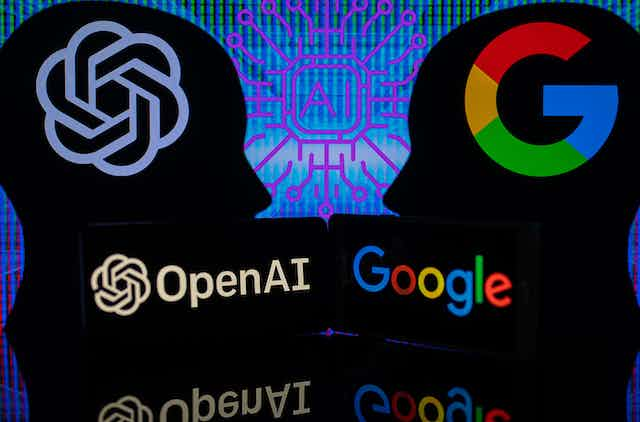Google and Microsoft are on a same page to bring innovations on their platform by bringing next-generation AI tools as add-ons to existing services.
On March 16, Microsoft announced that it is incorporating AI-powered system called Copilot to its 365 suite apps including Word, Excel,Outlook,PowerPoint and Teams.
On the other hand, Google has also planned to embed AI into its Workspace apps such as Sheets, Docs, Slides, Chat and Meet.
Collectively, millions of people use these apps on daily basis whether we talk about an individual or a corporate sector. Hence , the decission will bring a major boost in employee’s productivity.

The Emergence Of Generative AI
Previously, AI was only used for recognition and categorization tasks for example recognising a number plate using a traffic camera.
With the emergence of AI, people get to know about more and more advancements and technology. Hence, chatGPT and Dall-E have taken the world to the next level.
In addition, Copilot and Workspace AI are built on new advanced and modernized technology on large language models (LLM) trained on massive amounts of data.
However, through advanced levels of data, the systems have learned many rules and patterns to facilitate the users.
Copilot, is an advanced-level AI, to help expedite tedious tasks. For instance, it will:
- Help users edit, write and summarize word documents
- Synthesise and manage the outlook inbox
- Helps in providing real-time summaries of Team Meetings
- Provide ideas and turns them into full PowerPoint presentations
- Brings data from across presentations, emails, documents and calendars
- Hence, Copilot will be a massive and effective addition to Microsoft’s Workspace
On the other hand, Google’s Workspace AI will offer similar capabilities for paying subscribers
Introducing a new era for AI and #GoogleWorkspace:
✅ Draft, reply, summarize & prioritize your Gmail
✅ Brainstorm, proofread, write, & rewrite in Docs
✅ Bring your creative vision to life with auto-generated images, audio, & video in Slides
And more → https://t.co/vGsTGN3w9i pic.twitter.com/XnkTWvrwgT— Google Workspace (@GoogleWorkspace) March 14, 2023
What’s Going On Inside?
Copilot is described as:
“Sophisticated processing and orchestration engine working behind the scenes to combine the power of LLM’s including GPT-4”.
Moroever, Google’s Workspace is built on PALM (Pathways Language Model) which was specifically trained on combination of books, news articles, Wikipedia sources, filtered webpages and social media conversations.
Though, both technologies are integrated into existing cloud infrastructure. This depicts that all the data available there will already be online and stored in company servers.
To provide contextualised responses, the tools must have full access to the pertinent content. For instance: without first analyzing the text, Copilot is unable to condense a 16-digit Word document into a single page of bullet points.
In the same context, Microsoft said,
“Copilot’s large language models are not trained on customer content or on individual prompts”.
Whereas, as per Google, “provide data is kept private and not used in the broader foundation model training corpus”.
Usability Concerns
As many have pointed out that text-based generative AI tools are susceptible to algorithmic bias. Though, the issue will also affect the Microsoft and Google tools.
Though, the results generated by AI tools are riddled with business and inaccuracies. This year, Microsoft’s own Bing chatbot, which runs on GPT-4, came under fire earlier for making outrageous claims.
Problems occur when a massive amount of data is available without proper understanding of the training data, and without proper knowledge of training process.
Security Concerns
One of the biggest vulnerability of Microsoft and Google is it’s easy accessibility for cyber criminals to bleed victims dry.
Whereas, before the arrival of AI-powered tools,cyber criminals had to go through hundreds of files and emails to find any particular data. However, they can now access it very easily through AI-assisted Features.
Though, data that is available online is muck riskier to access in comparison to the data that is already available on your computer.
Alas, from a privacy perspective,it’s not particularly encouraging to see new ways for the largest corporations in the world to gather and combine the data.
Read more:
OpenAI Releases New and More ‘Creative’ Version of ChatGPT Named GPT-4
Global Debate Has Been Made On Whether AI Security Guards Should be Given Guns Or Not












